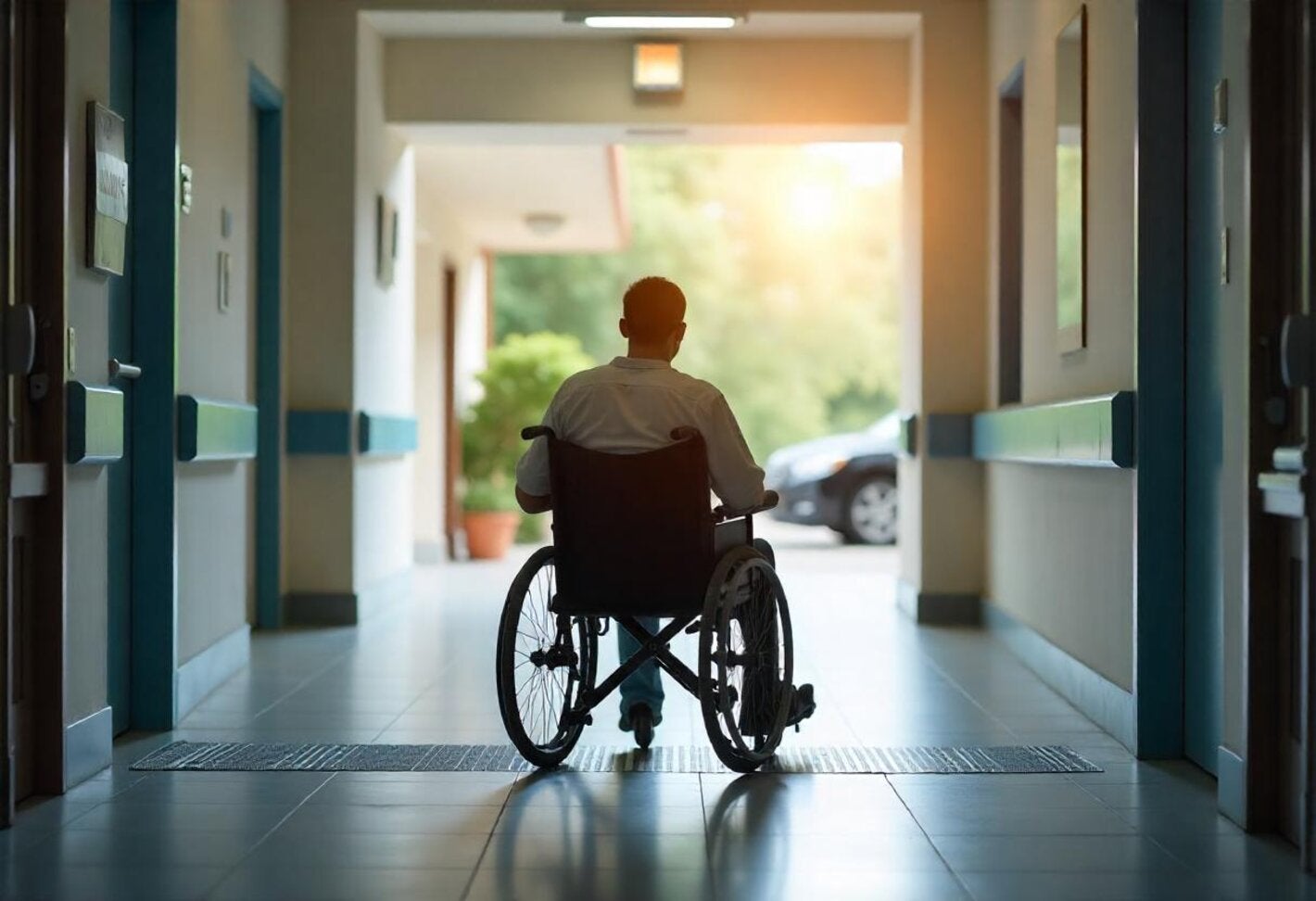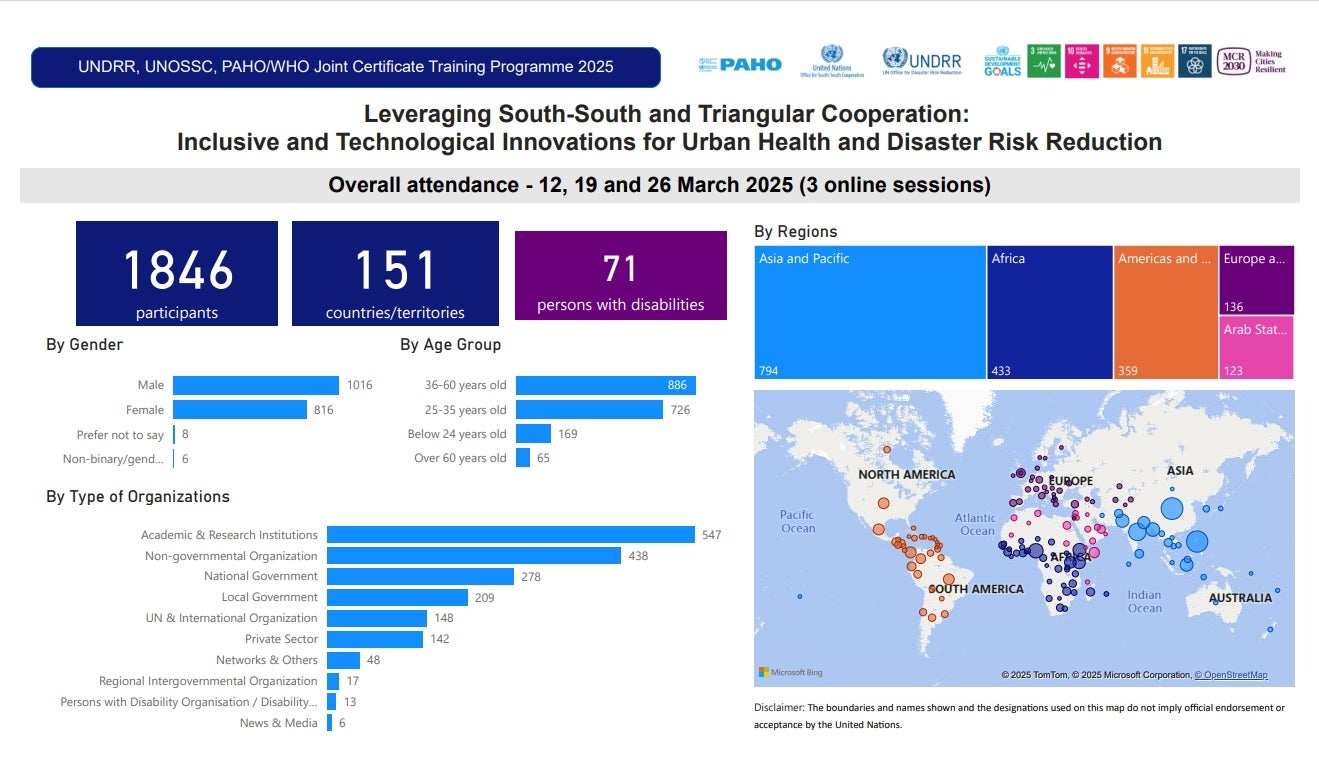
April 1, 2025 — Washington, D.C. (PAHO) - As part of the 2025 Certified Joint Training Program, the Pan American Health Organization (PAHO/WHO), in collaboration with the United Nations Office for Disaster Risk Reduction (UNDRR) and the United Nations Office for South-South Cooperation (UNOSSC), successfully concluded a three-session virtual course for the fifth time. This course focused on strengthening urban resilience and preparedness for health emergencies and disasters from an inclusive and intersectoral perspective.
This year's course, titled “Leveraging South-South and Triangular Cooperation: Inclusive and Technological Innovations for Urban Health and Disaster Risk Reduction,” brought together over a thousand participants from local and national governments, international organizations, civil society, academia, and the private sector from more than 140 countries and territories. The sessions were translated into seven languages and international sign language.
This event exemplifies successful inter-agency collaboration for disaster risk management in urban environments, achieving efficient joint inter-programmatic coordination between PAHO, UNDRR, and UNOSSC. It also involved coordination between the Office for the Coordination of Countries and Subregions (CSC), the Health Emergencies Department (PHE), and the Healthy Life Course Unit of the Health Systems and Services Department (HSS) of PAHO, which led session 2 on March 19th.
Session 2 presented a comprehensive approach to including people with disabilities and older adults in disaster risk and health emergency management in urban contexts. Additionally, session 1, led by UNDRR, and session 3, led by UNOSSC, addressed crucial issues related to the inclusion of people with disabilities in disaster risk reduction (DRR) and the importance of technological innovation in urban risk management. These sessions featured emblematic cases of artificial intelligence, IoT sensors, early warning systems, and satellite mapping applications in countries such as China, Colombia, and Gambia.
These sessions reaffirmed that building resilient and sustainable cities is impossible if one of the most vulnerable groups in crisis contexts—people with disabilities—continues to be excluded. South-South cooperation plays a crucial role in facilitating knowledge transfer, capacity building, and access to solutions adapted to specific contexts.
The 2025 Certified Joint Training Program represents not only a training effort but also a concrete platform to strengthen governance, intersectoral coordination, and joint action for healthy and safe cities. The “whole of society” approach and coordinated work between agencies, sectors, and levels of government were cross-cutting themes in all sessions, enabling progress toward integrated solutions to challenges such as climate change, rapid urbanization, and structural inequalities.
PAHO's coordination and active participation, from an inter-programmatic and inter-institutional approach, demonstrate that only through collaboration can we guarantee more comprehensive approaches and ensure that no one is left behind in crisis situations. PAHO reaffirms its commitment to urban resilience, health equity, and inclusive innovation as pillars for a sustainable future.
The course “Leveraging South-South and Triangular Cooperation: Inclusive and Technological Innovations for Urban Health and Disaster Risk Reduction” is available with translations into Arabic, Chinese, Spanish, English, French, Portuguese, Russian, and International Sign Language.




